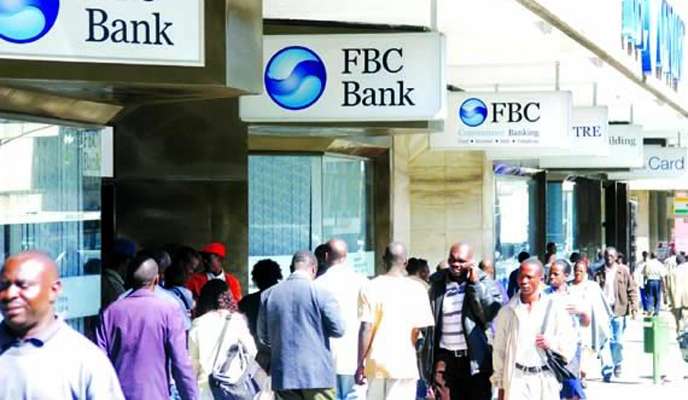The Reserve Bank of Zimbabwe (RBZ), in its mid-term monetary policy review for 2021, disclosed that, the banking sector has remained relatively stable due to the country’s stable economy.
The banks continue to operate in a safe and sound financial environment, despite the adverse impact of Covid-19, the RBZ disclosed.
In the monetary policy review, the RZB highlighted that, “the banking sector remained adequately capitalized, with aggregated core capital of $57.54 billion as of June 30, 2021, an increase of 8.09 percent from $53.18 billion as of December 31, 2020”.
Also, the banking sector’s average capital adequacy and tier one ratios of 35.32 percent and 25.05 percent respectively, were well “above the regulatory minima of 12 percent and 8 percent respectively”.
According to commercial banks and listed firms on the Zimbabwe Stock Exchange (ZSE), the banking sector has continued to exhibit some qualities of resilience to the adverse shock of the Covid-19 pandemic.
The FBC Bank Limited, one of Zimbabwe’s commercial banks disclosed that Government’s agile Covid-19 vaccination programme has yielded a significant progress towards national herd immunity.
This, the FBC Bank believes, in the short to medium term will result in the gradual relaxation of Covid-19 restrictions, and hence foster economic recovery.
“Economic outlook for the near term is optimistic. There are hopes that the on-going inoculation exercise will downside risk relating to the possible resurgence of new Covid-19 variations which pose potential threats to both humanity and economic activity.”
FBC Bank Limited

Also, FBC disclosed that, the re-modelling of the bank’s business model to assimilate digitalization, has better served the convenience of customers, and has provided a resistance towards the adverse impact of the Covid-19 pandemic.
Similar to the views held by FBC, CABS, a member of the Old Mutual Group, disclosed that, “the year 2021 is projected to end on an improved note compared to 2020, despite uncertainties relating to the Covid-19 pandemic”.
CABS further disclosed that it will commit efforts to support the country’s economic recovery by providing their clients with comprehensive baking services.
In the meantime, FBC revealed that business confidence has improved significantly due to the enabling financial environment provided by the availability of foreign currencies.
“The environment brought about by foreign currency availability has greatly improved business confidence and the success of the conservative monetary targeting framework since 2020.
“And has helped to contain money supply growth, which in turn stabilized the exchange rate and eased inflationary pressures in the economy.”
FBC Bank Limited
Furthermore, FBC disclosed that Zimbabwe’s annual inflation has maintained a downward trend since 2020. This FBC revealed, is due to the monetary policies implemented by the Reserve Bank of Zimbabwe.
These monetary policies FBC disclosed, has “managed to anchor inflation expectations as attested by a significant decline in inflation from 837.5 percent in July 2020 to 502 percent in July 2021”.
Furthermore, Zimbabwe’s banking sector remains optimistic with a relatively stable economy sponsored by growth in key sectors, foreign exchange availability and a stable inflation.
Also, this optimism by the banking sector, RBZ disclosed, is supported by the country’s US$961 million International Monetary Fund’s (IMF) Special Drawing Rights (SDR) allocation.
READ ALSO: Ghana secures EUR 215 million in support of major hospital projects





















